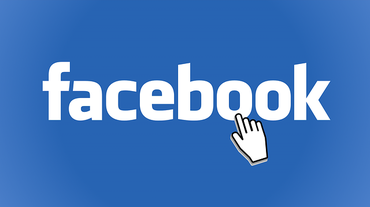Leverage
 Well, what's 37 million or 2 billion scraped accounts more or less among friends? The exploding hairball of the Facebook/Cambridge Analytica scandal keeps getting bigger. And, as Rana Dasgubta writes in the Guardian, we are complaining now because it's happening to us, but we did not notice when these techniques were tried out first in third-world countries. Dasgupta has much to say about how nation-states will have to adapt to these conditions.
Well, what's 37 million or 2 billion scraped accounts more or less among friends? The exploding hairball of the Facebook/Cambridge Analytica scandal keeps getting bigger. And, as Rana Dasgubta writes in the Guardian, we are complaining now because it's happening to us, but we did not notice when these techniques were tried out first in third-world countries. Dasgupta has much to say about how nation-states will have to adapt to these conditions.
Given that we will probably never pin down every detail of how much data and where it went, it's safest to assume that all of us have been compromised in some way. The smug "I've never used Facebook" population should remember that they almost certainly exist in the dataset, by either reference (your sister posts pictures of "my brother's birthday") or inference (like deducing the existence, size, and orbit of an unseen planet based on its gravitational pull on already-known objects).
Downloading our archives tells us far less than people recognize. My own archive had no real surprises (my account dates in 2007, but I post little and adblock the hell out of everything). The shock many people have experienced of seeing years of messages and photographs laid out in front of them, plus the SMS messages and call records that Facebook shouldn't have been retaining in the first place, hides the fact that these archives are a very limited picture of what Facebook knows about us. It shows us nothing about information posted about us by others, photos others have posted and tagged, or comments made in response to things we've posted.
The "me-ness" of the way Facebook and other social media present themselves was called out by Christian Fuchs in launching his book Digital Demagogue: Authoritarian Capitalism in the Age of Trump and Twitter. "Twitter is a me-centred medium. 'Social media' is the wrong term, because it's actually anti-social, Me media. It's all about individual profiles, accumulating reputation, followers, likes, and so on."
Saying that, however, plays into Facebook's own public mythology about itself. Facebook's actual and most significant holdings about us are far more extensive, and the company derives its real power from the complex social graphs it has built and the insights that can be gleaned from them. None of that is clear from the long list of friends. Even more significant is how Facebook matches up user profiles to other public records and social media services and with other brokers' datasets - but the archives give us no sense of that either. Facebook's knowledge of you is also greatly enhanced - as is its ability to lock you in as a user - if you, like many people, have opted to use Facebook credentials to log into third-party sites. Undoing that is about as easy and as much fun as undoing all your direct debit payments in order to move your bank account.
Facebook and the other tech companies are only the beginning. There's a few people out there trying to suggest Google is better, but Zeynep Tufekci discovered it had gone on retaining her YouTube history even though she had withdrawn permission to do so. As Tufekci then writes, if a person with a technical background whose job it is to study such things could fail to protect her data, how could others hope to do so?
But what about publishers and the others dependent on that same ecosystem? As Doc Searls writes, the investigative outrage on display in many media outlets glosses over the fact that they, too, are compromised. Third party trackers, social media buttons, Google analytics, and so on all deliver up readers to advertisers in increasing detail, feeding the business plans of thousands of companies all aimed at improving precision and targeting.
And why stop with publishers? At least they have the defense of needing to make a living. Government sites, libraries, and other public services do the same thing, without that justification. The Richmond Council website shows no ads - but it still uses Google Analytics, which means sending a steady stream of user data Google's way. Eventbrite, which everyone now uses for event sign-ups, is constantly exhorting me to post my attendance to Facebook. What benefit does Eventbrite get from my complying? It never says.
Meanwhile, every club, member organization, and creative endeavor begs its adherents to "like my page on Facebook" or "follow me on Twitter". While they see that as building audience and engagement, the reality is that they are acting as propagandists for those companies. When you try to argue against doing this, people will say they know, but then shrug helplessly and say they have to go where the audience is. If the audience is on Facebook, and it takes page likes to make Facebook highlight your existence, then what choice is there? Very few people are willing to contemplate the hard work of building community without shortcuts, and many seem to have come to believe that social media engagement as measured in ticks of approval is community, like Mark Zuckerberg tried to say last year.
For all these reasons, it's not enough to "fix Facebook". We must undo its leverage.
Illustrations: Facebook logo.
Wendy M. Grossman is the 2013 winner of the Enigma Award. Her Web site has an extensive archive of her books, articles, and music, and an archive of earlier columns in this series. Stories about the border wars between cyberspace and real life are posted occasionally during the week at the net.wars Pinboard - or follow on Twitter.